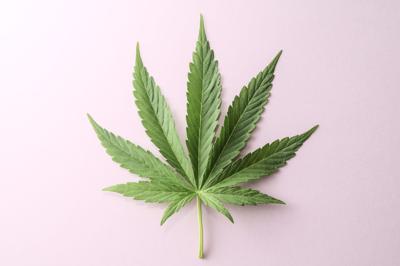With the “holidaze” soon approaching, your pre-teens and teens have likely been made aware, whether they mention it to you or not, that there is something special about the number 420 and the date April 20. 420 and other nicknames The reasoning for 420 becoming synonymous with smoking marijuana has been hotly contested, but according to Time magazine, the most credible story is that five high school students in 1971 would meet on their school’s campus at 4:20, when all the afterschool activities had ceased, and “smoke a doobie” together. When, later, one of those students became a roadie for The Grateful Dead, he continued the ritual of lighting up at 4:20, inviting others to join, and eventually spreading the term and tradition into a global phenomenon.
These days you likely won’t hear anyone under age 50 saying “smoke a doobie,” but rather embracing one of the many other nicknames for the substance scientifically known as Cannabis. One of the reasons the drug has so many names is because it is a global plant with many varieties and each variety produces a different effect - Mexican “marihuana” feels different than Indian “hashish.” Users often come up with their own personalized nicknames, much like the students in 1971, but some common nicknames these days are “weed,” “bud,” “dab,” “smoke,” “pot,” “trees,” “herb,” “chronic,” and even “broccoli.

” (Synthetic varieties K2 or “spice” are also becoming popular among today’s teens and may be more dangerous.) Talking with teens Signs are pointing toward making April 20th a day to start an honest conversation with your teens and pre-teens about the use of marijuana. Adobe stock Whatever you call it, it’s important not to avoid the subject with curious middle and high school aged kids who will not only encounter friends who smoke it, but also see CBD shops popping up all over town with pot leaf symbols displayed, and hear news stories contesting its legality.
Regardless of your own personal feelings about the legality and use of cannabis products, it is a good idea to share the straight facts (like the ones below) with your teen to help guide them to make wise choices and prevent them from hiding risky behavior from you. Whether you suspect your teen is going to partake on the holiday or you are convinced they are clueless about the topic, the Partnership to End Addiction recommends maintaining an open mind and a calm positive demeanor when engaging in what can seem like an awkward conversation. Be open about the medical risks and benefits One justification people will use for smoking or ingesting weed is that is has medicinal value.
There is undeniable scientific evidence that cannabis can provide great relief for ADULTS suffering from fibromyalgia, struggling with nausea from chemotherapy, or experiencing PTSD induced nightmares. It is even being investigated for use in children with epilepsy; however, this is closely monitored by doctors. Using cannabis, in any form, before the brain is fully developed around age 25, can have negative consequences.
In the short term, teen users may experience panic, psychosis, or fainting. Long-term effects include changes in mental health, and difficulty with concentration, memory, and ability to learn. One common misconception is that weed is not addicting.
It is true that cannabis does not have immediate addictive power like opiates or other hard drugs and there is no evidence that cannabis is a “gateway” to those other hard drugs, but the CDC estimates that between 10% and 30% of those who habitually use it develop “marijuana use disorder.” The risk of addiction is significantly higher among young people. Marijuana use disorder is characterized by trying and failing to quit and negative repercussions from not quitting.
A person with the disorder may not be able to get a job because they can’t pass a drug test, or they may pass up on social opportunities in favor of staying home to smoke. Legal and social pitfalls While marijuana has been legalized, medicinally or recreationally, in the majority of states across the U.S.
, it still remains completely illegal in South Carolina, with a “Compassionate Care Act” recently stalling in the state senate. This means that in addition to the medical dangers for growing brains, cannabis use can also land teens in legal trouble. Most teen drug charges are addressed in juvenile court and will require a lawyer, which can rack up hefty fees.
Teens accused of possession may end up on probation and be required to comply with specific terms like attending school regularly, find a job, complete community service, etc. However, repeat possession offenders or those suspected of the intent to distribute may find themselves with more serious charges and end up in the juvenile detention center. Doing some community service may not seem like a big deal to a teen, but considering the time and costs, they may realize the risk of getting caught with cannabis is not worth the reward of a short high.
Parents can also bring attention to the fact that having juvenile charges may hurt a student’s chance of getting into the college of their choice, or that many employers require potential employees to pass a drug test and marijuana stays in the body for lengthy amounts of time, depending on frequency of use. This year, you can use the 4-20 “holiday” as a segue into a conversation with your teen or pre-teen about the dangers and pitfalls of cannabis. Regardless of whether you are secretly “smoking a doobie” when the kids are out of the house, or you think it’s “the devil’s lettuce” and hope it stays banned forever, remember to approach the conversation with a listening ear and without accusation or emotion, and be honest about both the positives some adults experience as well as the real potential consequences of using marijuana, bud, Mary Jane, broccoli - whatever you feel comfortable calling it.
One way to start may be asking, “What do you know about 420?”.
Technology

Facts about 420 parents need to know

Facts about 420 parents need to know to talk to their teens on April 20.















